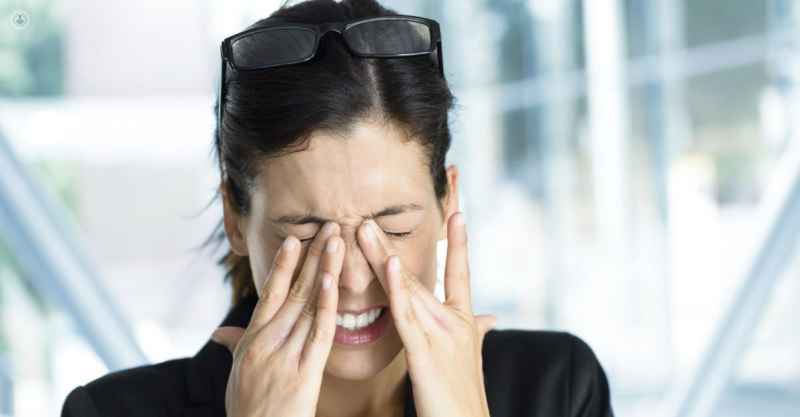What is Sjögren’s syndrome?
Written by:Sjögren’s syndrome (pronounced Show-grins) is a condition that affects the parts of the body that produce fluids like tears and saliva. Usually, people most affected are those aged between 40-60 years old and women. The condition may occur in association with other autoimmune diseases such as lupus, rheumatoid arthritis or myositis and lung disease.
Rheumatologist Dr Joel David talks about the symptoms of sjögren’s syndrome and how it can be treated.

What are the symptoms of sjögren’s syndrome?
Symptoms affecting the eyes:
- Dry eyes
- Burning, stinging or itchy eyes
- A feeling of grit or sand in your eyes
- Sore, red and swollen eyelids
- Discomfort when looking at lights
- Sticky eyelids when you wake up
Symptoms sometimes worsen with dry air, windy and smoky environments. Air conditioning and medications such as amitriptyline can also aggravate the eyes further.
Oral symptoms:
- Dry mouth
- Difficulty swallowing and eating dry foods
- Experiencing a change in how food tastes
- A smooth, red tongue that sticks to the roof of your mouth
- Hoarseness
- Dry, cracked skin around the corners of your lips
- Dental decay and oral thrush
Other symptoms:
- Itchy, dry skin and skin rashes after being out in the sun
- Swelling between the jaw and ears and swollen salivary glands
- Exhaustion
- Vaginal dryness in women, which can make sex painful
- A dry cough
- Muscle pain and joint stiffness
- Difficulty with memory and concentration
How is sjögren’s syndrome treated?
If the condition is affecting your eyes, it is advised to:
1. Avoid dry, smoky and windy places. A humidifier at home or at the office can help to keep the air moist
2. Avoid reading or looking at screens for long periods of time
3. Wear protective, wraparound sunglasses that avoid wind and smoke from getting to the eyes
4. Practise good eyelid hygiene, regularly cleaning your eyelids, removing any makeup
5. Visit the optician regularly and avoid any medication where dry eyes is a side effect
Artificial tears and ointments can be purchased over-the-counter to lubricate the eyes. Talk to your doctor to find out what treatment works best for you. Note that if you’re using eye drops more than three times a day, avoid eye drops that contain preservatives to avoid further eye damage.
Sometimes a type of medication called pilocarpine may be prescribed to help your body produce more natural tears or a procedure may be carried out to block the tear ducts to prevent tears from draining away.
Treating a dry mouth
1. Practice good oral hygiene and brush your teeth twice a day with fluoride toothpaste
2. Rinse your mouth with mouthwash after brushing
3. Chew sugar-free gum to activate the salivary glands
4. Keep hydrated with plenty of water
5. Use lip balm to soothe cracked and sore lips
6. Visit your dentist every six months
7. Avoid alcohol and smoking as much as possible
Saliva substitutes can be bought from the pharmacy to keep the mouth moist and can be found in spray, tablet and gel form.
Treating other symptoms
Dry skin can be managed by moisturising every day and avoiding any strong, perfumed soaps and lotions.
Vaginal dryness can be treated with lubricants if sexual intercourse is painful. Certain creams can prevent vaginal dryness and hormone treatments such as oestrogen medication or hormone replacement therapy can be used. If joint pain and stiffness are experienced, hydroxychloroquine is sometimes recommended.
If you are experiencing any of the symptoms mentioned above and would like more information regarding treatment, you can book an appointment with Dr Joel David via his profile.


